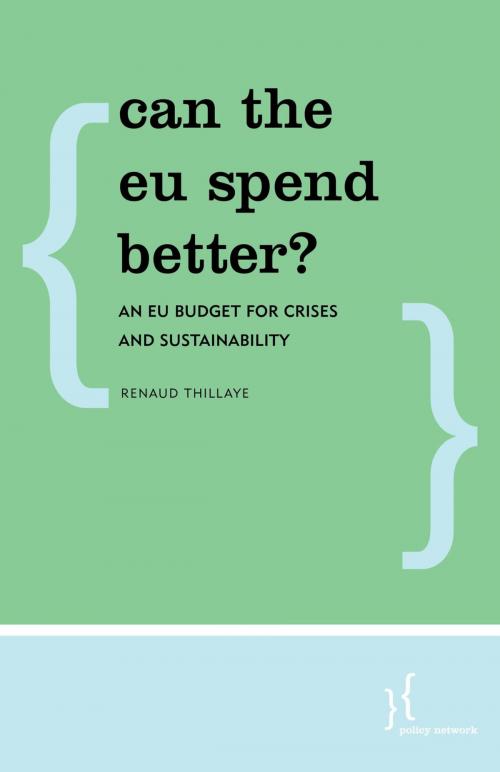Can the EU Spend Better?
An EU Budget for Crises and Sustainability
Business & Finance, Accounting, Budgeting, Nonfiction, Social & Cultural Studies, Political Science, Politics, Economic Conditions, Economic Policy| Author: | Renaud Thillaye | ISBN: | 9781786602855 |
| Publisher: | Rowman & Littlefield International | Publication: | December 22, 2016 |
| Imprint: | Policy Network | Language: | English |
| Author: | Renaud Thillaye |
| ISBN: | 9781786602855 |
| Publisher: | Rowman & Littlefield International |
| Publication: | December 22, 2016 |
| Imprint: | Policy Network |
| Language: | English |
The main parameters of the EU budget are decided upon every seven years when the MFF (Multi-annual Financial Framework) is negotiated. Before the end of 2016, EU institutions will undertake a mid-term review of the EU’s 2014-2020. This comes in a context of severe turbulences for the EU project: a difficult economic and social situation in most member states, huge migration pressures and new security threats stemming from an unstable environment, and the Britain’s decision to leave the EU.
At the same time, EU countries need to face up to climate change and engineer a smooth transition towards an innovation-based sustainable economic model. The EU’s very survival depends on the ability to respond to these multiple challenges in the next few years. Making a smarter and more strategic use of the €960 billion MFF has become a necessity.
Can the EU Spend Better? argues that the scope for a substantial revision of the MFF is limited in the short-term. At most, pressing issues such as terrorism and the deteriorated social situation will lead to greater flexibility in the use of existing envelopes. However, the debate starting in 2017 over the next MFF provides with the opportunity of more substantial shifts in four main directions: more investment- and performance-oriented spending; the expansion of climate conditionality to all spending areas; more targeted redistributive spending matched with greater reform conditionality; a more outward-looking budget.
The main parameters of the EU budget are decided upon every seven years when the MFF (Multi-annual Financial Framework) is negotiated. Before the end of 2016, EU institutions will undertake a mid-term review of the EU’s 2014-2020. This comes in a context of severe turbulences for the EU project: a difficult economic and social situation in most member states, huge migration pressures and new security threats stemming from an unstable environment, and the Britain’s decision to leave the EU.
At the same time, EU countries need to face up to climate change and engineer a smooth transition towards an innovation-based sustainable economic model. The EU’s very survival depends on the ability to respond to these multiple challenges in the next few years. Making a smarter and more strategic use of the €960 billion MFF has become a necessity.
Can the EU Spend Better? argues that the scope for a substantial revision of the MFF is limited in the short-term. At most, pressing issues such as terrorism and the deteriorated social situation will lead to greater flexibility in the use of existing envelopes. However, the debate starting in 2017 over the next MFF provides with the opportunity of more substantial shifts in four main directions: more investment- and performance-oriented spending; the expansion of climate conditionality to all spending areas; more targeted redistributive spending matched with greater reform conditionality; a more outward-looking budget.















